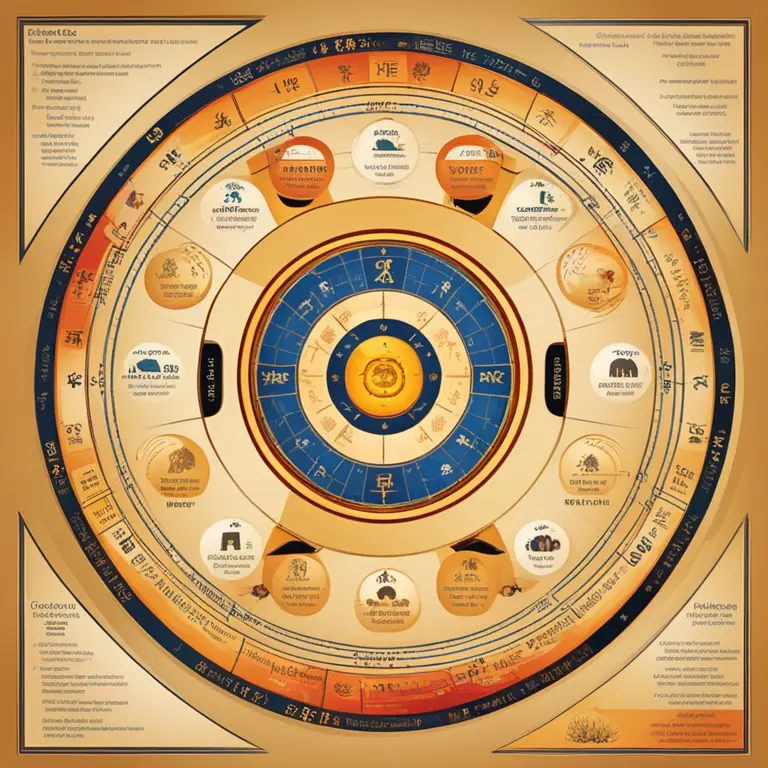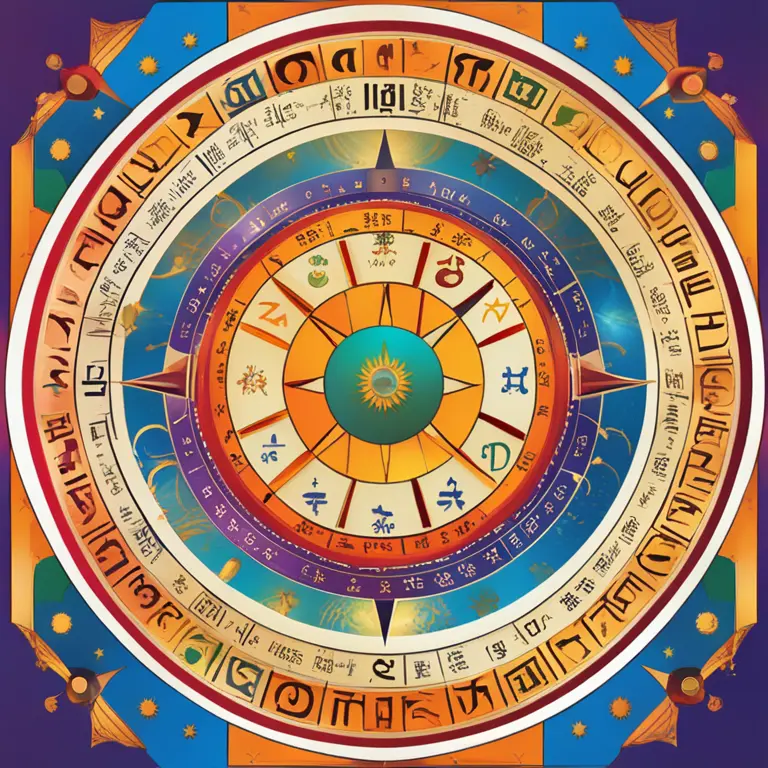
The Precision of Astrological Practices: A Comparative Insight
An in-depth analysis of various astrological systems to determine which offers the most accurate insights into our lives, based on principles and relevance in 2024 and beyond.
article by Priya Deshmukh
Astrological Systems: A Brief Overview
Astrology has been a guiding practice for millennia, offering insights into personalities, destinies, and life events. As we delve into the future, the debate regarding which astrological system — Western, Vedic, Chinese, or others — provides the most accuracy, continues. While the quest for precision is complex, it's essential to understand the foundations of these traditions. Western astrology, based on the tropical zodiac, focuses on psychological aspects and emphasizes the Sun sign. Vedic astrology, or Jyotish, uses the sidereal zodiac and predicts life events with a karmic perspective. Chinese astrology, a system in its own right, centers around the lunar calendar and assigns animals to birth years. But can one system truly claim supremacy in precision?

Western Astrology: Signs of the Times
Western astrology is deeply ingrained in pop culture and is known for its zodiac signs and horoscopes. It operates on the tropical zodiac, which is oriented to the seasons. The precision in this system comes from the birth chart or natal chart, which captures the exact positions of the planets at the time of birth. However, critics argue that Western astrology lacks reliability because it doesn't account for the precession of the equinoxes, which shifts the zodiac signs over time. Yet, its proponents maintain that its value lies in the interpretation of symbolic meanings rather than strict predictive accuracy.

Vedic Astrology: Karmic Insights
Vedic astrology, which originated in ancient India, uses more complex calculations based on the sidereal zodiac. It accounts for the precession of the equinoxes, offering a different constellation backdrop than Western astrology. This system emphasizes karmic patterns and life cycles, such as dashas, which influence predictive accuracy. The meticulous detail to planetary movements and their impact on the individual are its hallmarks. It claims higher precision in forecasting life events, but it requires in-depth knowledge and a skilled practitioner to interpret the comprehensive charts accurately.

Chinese Astrology: Animal Archetypes
Chinese astrology sets itself apart with its 12-year cycle of animal zodiac signs. It's intertwined with the principles of Yin and Yang, the Five Elements, and traditional Chinese medicine. Each year, personality traits and life outcomes are associated with the ruling animal, providing a social and spiritual context for predictions. Although regarded by many as less specific than Western or Vedic astrology, Chinese astrology holds significant cultural accuracy and is valued for its use in determining compatibility and forecasting annual trends.

Accuracy in Interpretation: Skill or Science?
The debate over accuracy isn't solely about calculations; interpretation plays a vital role. Skilled astrologers interpret charts dynamically, using insight and experience to provide readings. Scientifically, astrology hasn't been proven to predict future events with high accuracy. Yet the personal validation many find in astrological readings suggests there may be more to it. In the end, the accuracy of astrology may not reside in the system but in the resonant and therapeutic value that individuals derive from the experience.
Looking Forward: Astrology in 2024 and Beyond
As we move forward, the role of technology in astrology becomes increasingly significant. With advancements in astronomical software, the precision of astrological calculations has improved. The integration of big data and AI into astrological practices also promises enhanced personalized insights. However, the forecast for which astrology system will dominate in accuracy remains uncertain, as it depends on individual and cultural preferences as well as the ongoing evolution of astrological scholarship.
A Question of Relevance Rather Than Precision
Astrology's value may not lie in empirical accuracy but in its relevance to the individual. Each system's methodologies reflect different aspects of the human experience, whether it's psychological understanding, karmic patterns, or societal values. In selecting an astrological system, one might consider personal resonance and cultural significance over empirical precision. The journey through the astrological landscape is deeply personal, and the most accurate system is perhaps the one that speaks most meaningfully to the seeker's life.
Published: 2/5/2024
Modified: 2/5/2024
More predictions
Come back here soon to learn more about yourself and your future


The Zodiac Signs and their Influence
Delve into the intricate world of zodiac signs, where celestial alignments offer insights into personality traits, future forecasts, and life paths.


Zodiac Signs' Essential Elements
Discover what each zodiac sign simply can't live without. Immerse yourself in the world of celestial necessitates unique to every sign.


From Zodiac Signs to Tarot Cards: A Celestial Guide
Connect the cosmic dots between your zodiac sign and the tarot with this insightful guide into the esoteric relationship of astrology and tarot card readings.